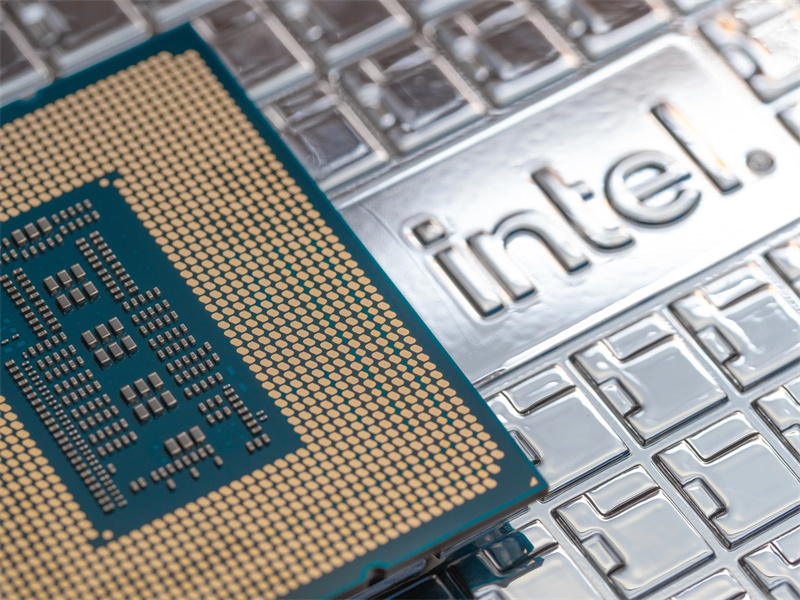In a significant move aimed at reshaping the memory landscape for AI workloads, Intel Corporation and SoftBank Group have announced the launch of Saimemory, a new joint venture dedicated to developing low-power stacked DRAM chips to rival High Bandwidth Memory (HBM). The $70 million initiative was incorporated in December 2024 and formally unveiled last week.
The collaboration brings together Intel's chip design and manufacturing expertise with SoftBank's strategic focus on AI and infrastructure investment. The goal is to build a new class of DRAM capable of delivering bandwidth comparable to HBM, while cutting power consumption by up to 50%—a critical need for increasingly power-hungry AI data centers.
A Response to the AI Power Crunch
AI processors—especially those used in large-scale generative models—rely heavily on HBM to handle massive data throughput. But HBM is expensive, power-intensive, and challenging to manufacture. With global demand for AI infrastructure soaring, supply constraints are tightening. Currently, only Samsung, SK hynix, and Micron produce the most advanced HBM chips.
Saimemory aims to address this bottleneck by stacking DRAM dies with optimized internal wiring, creating a more power-efficient alternative without compromising performance. This would significantly reduce operational costs for hyperscale data centers and offer a more sustainable solution as energy usage in AI continues to rise sharply.

SoftBank Eyes Domestic Market, Strategic Supply
The chips are initially aimed at Japanese data centers, aligning with SoftBank's broader push to boost Japan's AI capabilities and reduce reliance on foreign semiconductor supply chains. According to Nikkei Asia, SoftBank is seeking priority access to the new chips for its domestic infrastructure projects, potentially including facilities linked to its Stargate Project.
This initiative also supports Japan's national strategy to reassert itself in the semiconductor sector. Once dominant in the 1980s, Japan's share in the global memory market has declined sharply amid competition from South Korea and Taiwan. With Saimemory, Japan is attempting to reestablish a foothold, this time by focusing on next-generation technologies essential for AI-era computing.
Intel's Memory Comeback
Intel's involvement in Saimemory marks its return to the DRAM space decades after its 1980s exit—an event former CEO Andy Grove once called an “emotional decision.” Though Intel retained a role in memory through its NAND and Optane (3D XPoint) businesses until divesting them in 2021 and 2022 respectively, the company is now seeking re-entry via innovation in power-efficient AI memory.
As part of this plan, Saimemory will work closely with Japanese universities, including the University of Tokyo, which is contributing patented research. The company expects to complete a prototype by 2027, with commercial viability and mass production targeted by 2030.

Differentiation from Competitors
While companies like Samsung and NEO Semiconductor are developing 3D stacked DRAM to increase capacity—targeting modules up to 512 GB—Saimemory is focused on reducing energy consumption. This approach directly addresses one of the most pressing challenges in AI infrastructure today: enabling compute performance without overwhelming energy costs or carbon footprints.
Outlook and Industry Impact
Experts view the Intel-SoftBank venture as a bold attempt to disrupt the memory status quo and bring fresh innovation into a tightly controlled market. If successful, Saimemory could position itself as a critical supplier of AI memory chips—especially in Japan—and potentially open the door to global expansion.
The partnership also signals a strengthening of ties between the U.S. and Japanese tech ecosystems, paving the way for future co-development in semiconductor technologies.
While technical hurdles such as heat dissipation, manufacturing yield, and integration with AI hardware remain, the potential payoff is substantial. For an industry increasingly defined by its ability to balance performance and sustainability, Saimemory may mark the start of a new chapter.
+86 191 9627 2716
+86 181 7379 0595
8:30 a.m. to 5:30 p.m., Monday to Friday
